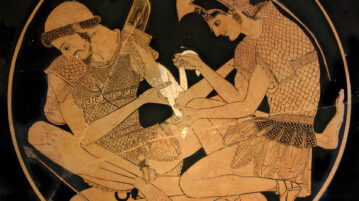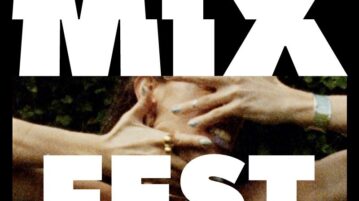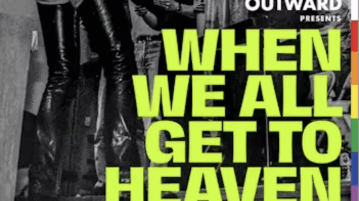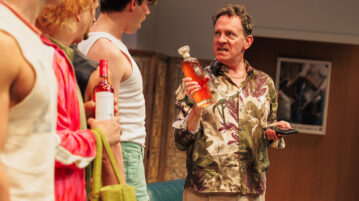
Let’s Choose Each Other Again
By Randal C. Smith
No relationship is perfect. No love is untouched by disappointment. No bond survives without negotiation, humility, and repair. What matters isn’t whether love lasts forever.

By Randal C. Smith
No relationship is perfect. No love is untouched by disappointment. No bond survives without negotiation, humility, and repair. What matters isn’t whether love lasts forever.

By Asa Williams
Before we call Achilles and Patroklos “gay lovers,” we must examine both the Greek language of love and the dangers of retroactively imposing modern categories.

By Kelley Nele
In most communities across the globe, queer identities aren’t widely accepted, but in a world where it’s wrong to be gay, it isn’t always considered wrong to do gay.

By Trinity Noone
MIX FEST, New York’s forum for queer experimental film, returned to Manhattan’s Quad Cinema in November.

Review of When We All Get to Heaven
By Jim Van Buskirk
…the newly released ten-episode podcast shares the story of the Metropolitan Community Church (MCC) of San Francisco.

By Jeremy C. Fox
Lately the girls ’n’ gays on social media have been feverish with excitement for the Canadian TV show Heated Rivalry, a titillating tale of forbidden love between two professional hockey stars.

By Brian Alessandro
Inspired by Alfred Hitchcock’s […] Rope, […] Messy White Gays imagines a Hell’s Kitchen brunch during which the hosts must hide the body of their throuple partner in a Jonathan Adler credenza.

By Scott Holleran
Like most viral videos, the April 2025 encounter in a Charleston, South Carolina, store aisle between Congresswoman Nancy Mace and Ely Murray-Quick dominated the news cycle..

By Brian Alessandro
While Allen Ginsberg might have “seen the greatest minds of [his] generation destroyed by madness,” the Lower East Side’s Metrograph theater hosted some of the greatest minds of ours…

By Anne Marie Molloy
From the late 1960s until a peace agreement was reached in 1998, Northern Ireland—particularly its capital, Belfast—was devastated by bitter sectarian violence dubbed “The Troubles.”